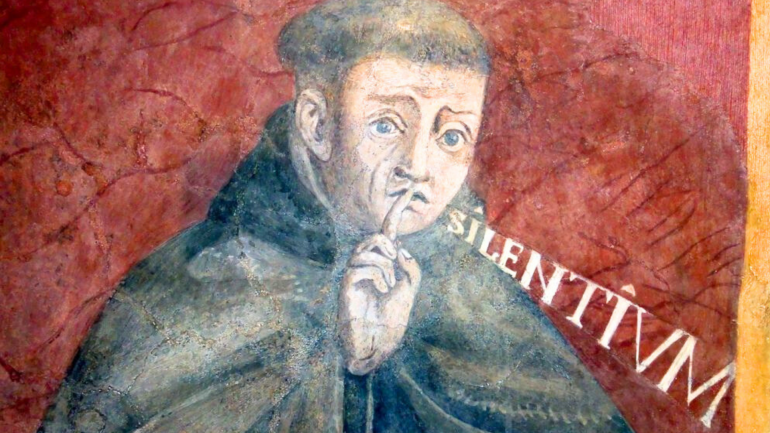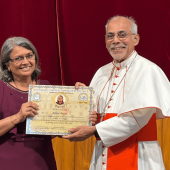The Gift of Solitude: Finding God in Silence

In today’s fast-paced world, silence and solitude often feel like rare luxuries. Yet, in the Christian tradition, solitude is more than just “being alone.” It is a deliberate stepping back, from noise, activities, and constant interactions, so that one can spend time with the Lord and hear His voice.
This practice has deep roots in Scripture and the lives of saints. Jesus Himself sought solitude at crucial moments of His ministry. As the Gospels recount, He rose early to pray alone (Mk 1:35), withdrew into the wilderness (Lk 5:16), and spent entire nights in prayer before making life-changing decisions, such as choosing the Twelve Apostles (Lk 6:12-19). Without these moments of communion with the Father, He could not have endured His trials, including Gethsemane and the Cross.
Saints Who Chose Silence
Many holy men and women, following the example of Christ, discovered strength and clarity in solitude. St. Bruno, the founder of the Carthusian Order, and St. Benedict, father of Western monasticism, built their communities around prayerful silence. St. Francis of Assisi and St. Ignatius of Loyola both retreated into solitude before founding their orders that went on to change the Church and the world.
Even the Old Testament tells of Moses and Elijah, who encountered God not in thunder and noise, but in the stillness of the desert.
The Catechism of the Catholic Church describes the hermit’s life as one dedicated to God’s worship and the salvation of the world “through a stricter separation from the world, the silence of solitude, and assiduous prayer and penance.” Cloistered convents and monasteries remain living witnesses of this call.
The Peace of the Cloister
Writers such as Patrick Leigh Fermor and Thomas Merton have given modern readers a glimpse of the peace that emerges from solitude. Fermor described monastic life as a quiet rhythm of prayer, silent meals, and long walks, where “the troubled waters of the mind grow still and clear.” Merton, a Trappist monk, observed: “It is not speaking that breaks our silence, but the anxiety to be heard. The humble man speaks only in order to be spoken to.”
These reflections remind us that solitude is not emptiness but fullness, an opportunity for God to speak when all other voices fade away.

Solitude in Daily Life
Of course, most of us are not called to monasteries or deserts. We live our vocations in families, parishes, workplaces, and communities. Yet solitude is still possible if we carve it out intentionally. A few moments of Eucharistic Adoration in a quiet church, walking or driving without music, reducing screen time, or simply sitting silently with Scripture, all these are ways to listen for God’s whisper amid daily life.
In fact, many people discover in solitude the clarity they need to face important decisions. A personal story illustrates this. While struggling with a complex problem, I was advised by a Franciscan friar to spend time in solitude with the Lord daily. Gradually, this practice not only brought peace but also led to answers.
A Source of Strength
Solitude is not escape but encounter. It teaches us to let go of distractions and center ourselves in God. As St. Elizabeth of the Trinity beautifully said: “I have within me a solitude where He dwells, and nothing can take that away from me.”
The wisdom of the Desert Fathers echoes the same truth: “Just as it is impossible to see your face in troubled water, so also the soul, unless it is clear of alien thoughts, is not able to pray to God in contemplation.”
In seeking solitude, whether for a few minutes a day or in longer retreats, we follow the footsteps of Christ and the saints. We discover that silence is not loneliness, it is communion. It is in solitude that our souls become still, our hearts open, and God’s voice becomes clear.
(Tom Thomas, a Catholic entrepreneur and writer based in Bangalore, South India, contributes articles to Catholic magazines and media platforms, both in India and abroad.)
Radio Veritas Asia (RVA), a media platform of the Catholic Church, aims to share Christ. RVA started in 1969 as a continental Catholic radio station to serve Asian countries in their respective local language, thus earning the tag “the Voice of Asian Christianity.” Responding to the emerging context, RVA embraced media platforms to connect with the global Asian audience via its 21 language websites and various social media platforms.














